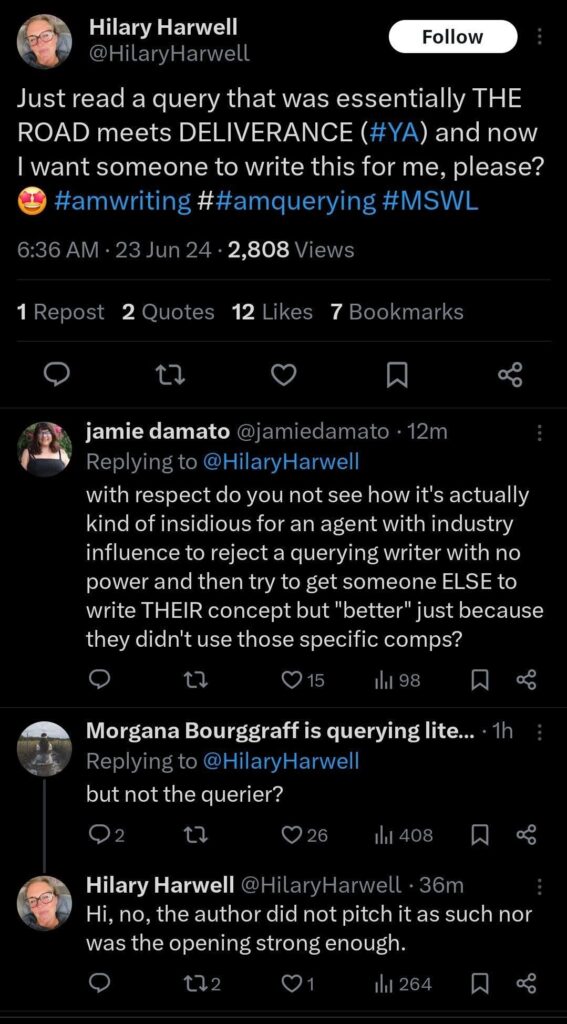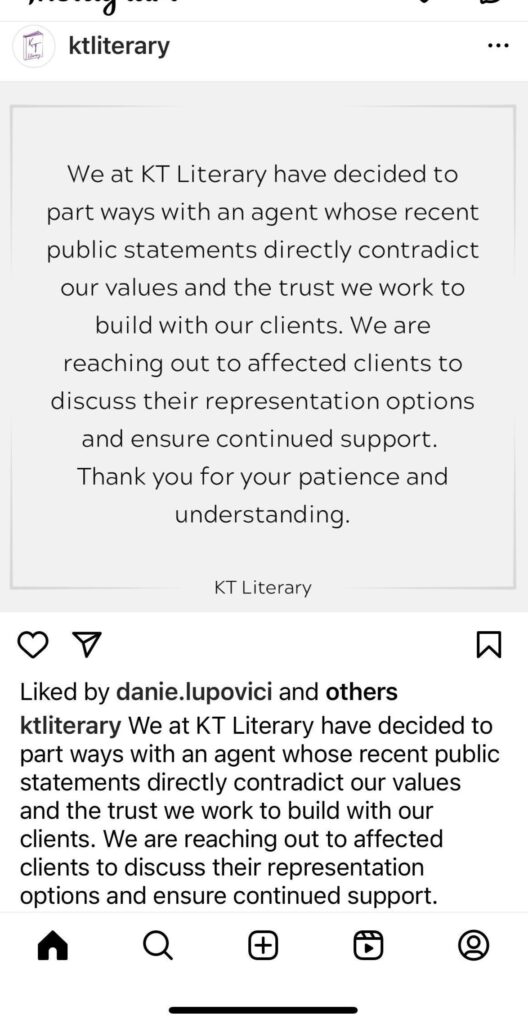This is a long one. I can’t afford therapy yet and it would be pointless to try family therapy since we’re thousands of miles away.
A week ago, I (35 NB, Seattle WA) made the difficult decision to stop talking to my younger brother (33 M, Boston, MA) for a few months. I’ll call him on his birthday, but until then, I need to chill out. We’re developing the exact same dynamic our father has with his older sister: he trashes her, low-level insults her, and makes it clear he still thinks she’s a child (they are in their early and late sixty’s, respectively). But he talks to her every day and invites her to every family event, and gets upset if someone doesn’t like her. He has done this for nearly forty years. My aunt effectively tunes him out, but attends every family event and responds to his calls. My dad is a hateful, cruel man and my aunt is terrible and disgusting. I am desperate not to wind up like them but I think I became at least toxic and no one’s telling me.
My younger brother reads the frequent messages I send him, and even saves and rereads them. He does not call or send messages to me, though, despite recognizing my phone number and greeting me eagerly when I do call. We were really close as kids. I feel like I’m putting all the effort into the relationship, and he thinks I’m largely invisible. Except when he asked me to be in his wedding. It was a society wedding, and I am poor and have no social skills, and it was just weird to hear “it would mean a lot to me for you to be in my wedding” when he never calls or emails, but instead expects me to. It was like we were eight years old and ten years old again: arguing became shouting, he hung up on me, and my mom had to get involved so we’d talk to each other again. Why did he want someone he largely ignores (me) to be in his wedding? This was four years ago and I remain confused. What did I miss?
He visited at a family event recently and I was the first person he hugged. He beamed and was so glad I was there. I hardly ever attend family events. A day later, he invited me to dinner with his wife, who is polite to me and I am painfully shy around her despite wanting to be friends. Some other family showed up, and, cue the low-level insults. SIL was horrified. I shrugged and looked away, but was really glad she didn’t join in. The insults have been going on for a decade and finally I snapped because he said one low-level insult too far. Part of me thinks he won’t notice me not sending him messages for awhile, but I know in my bones that he will notice right away and be heartbroken. it’s not forever. i’ll just say my life is boring.
How do I avoid turning out like my aunt? How can I stand up to my brother and get him to quit insulting me? From now on, I will call him three times a year and send him messages maybe three times a year separately. Nothing like i used to, because I need to stop putting in so much effort. It breaks my heart and I totally cried when I made this decision. I risk him not liking me anymore, which I dread.
Primarily I would like validation and good wishes.
Phew, there’s a lot going on in this one, and while I know you’re saying you want validation and good wishes, I’m going to have to be Tough Love Jenny a little bit, so hold tight, okay, and then I’ll have validation and good wishes at the end.
Your family does have a toxic dynamic. You see the same dynamic developing between you and your brother as between your father and your aunt… but you largely blame only your brother for that, and you seem to expect him to change it all on his own.
Don’t get me wrong: you are one-hundred percent totally justified in not wanting your brother to belittle and insult you. I don’t know if you’ve had that conversation with him: you treat me the way Dad treats Aunt, and I want a healthier and more loving relationship than that with you. If you have had that conversation and he’s continuing to ignore it, if you’ve tried to explicitly convey to him that his behavior toward you isn’t okay and he keeps violating that boundary, cutting him off is probably the best option. What you’re describing, though, isn’t cutting someone off. It’s taking a break and resting up for the next battle. Ignoring him, then making excuses for why you ignored him without ever addressing the issue, only reinforces that he’s allowed to treat you this way without any consequences. And it sounds like that’s exactly how your aunt handles your father.
But if you haven’t explicitly discussed your feelings about this at all with him, and you’re just waiting to see if he figures it out himself… he won’t. You’ve both been raised in the same family, with the same toxic examples of familial love. Your brother is likely treating you the way your father treats your aunt because that’s what’s been modeled for you both. His actions are shitty. Does he know they’re shitty? Or does he believe this is how a brother shows love to a sister? My bet is the latter, based on his confusion at your refusal to be in his wedding. His behavior toward you suggests that he believes you’re in a mutually loving and healthy relationship, and seeing your aunt endure this same behavior without objection has just reinforced that belief.
If you have had a boundary-setting conversation with him, don’t tell him you just got busy and couldn’t call or text. Tell him flat out that you didn’t message because he violated that boundary. And if you haven’t had that conversation yet, don’t lie and say it was just something else keeping you from messaging him. “I stopped messaging you for a while because I was trying to think of the best way to approach this subject with you, but it’s time we had this talk.”
Now, I can’t guarantee that he’s going to hear you out and change his behavior immediately. He might dismiss your concerns entirely. He might say you’re overreacting. He might not be able to accept that your family has flaws. And in that case, unfortunately, you have to decide whether or not you want to stay locked in the role of your aunt for the next fifty years, or if you need to step away from your brother entirely until he recognizes the toxicity inherent in your relationship.
Here’s the validation and good wishes part: You’re not imagining that you’re in a toxic situation. You really are. And recognizing that was emotionally mature. I hope that things work out for you and your brother and hashing this out brings you closer together. But if it doesn’t, I hope (and believe) that getting this out in the open and setting boundaries is going to bring you peace.
While I think I have come up with my own answer to this question, I am curious how others answer it as well. Growing up life was a series of goals: high school, college, live overseas for a bit, grad school, a job, etc. But, after getting a job I enjoyed, I realized that I no longer knew what came next. For some, they go down the family path (find an SO, get married, have kids, usher kids down the education path), but that never appealed to me. So, I felt like I’d reached a plateau. It was not great for my mental health. So that is my question: what do you do once you’ve reached your goals and don’t know what to do next? When life has always been a series of mountains to scale, what do you do when you can’t see the next peak to climb?
Make another mountain.
Life isn’t like the game of the same name. You don’t have to make it to the finish line with a carload of pink and blue pegs and a paid-off mortgage. If the traditional path doesn’t appeal to you, you’re not a failure if you don’t take it. But that does leave you with the job of making another path. Maybe that can be your first goal.
It doesn’t have to include culturally approved milestones. It doesn’t have to be productive or look important to anyone else. You could just get up every single day and make a goal of doing something you’ve never done. Make a bunch of them. Make them big and small. “I’ve never run as fast as I can to the stop sign on the corner.” “I’ve never learned Russian.” “I’ve never run for local office.” Actually, that last one might not be good advice; you might end up drain commissioner or something. But you get where I’m going with this.
Nobody on the planet has ever lived the same life as someone else. So nobody on the planet should be measuring the worthiness or validity of their lives on someone else’s. Celebrate that you’ve completed the goals that you cared about. Now, you get find out what’s really going to make you happy.
That’s my three cents for the week. Got a question you want to ask Trout? Leave it here.

